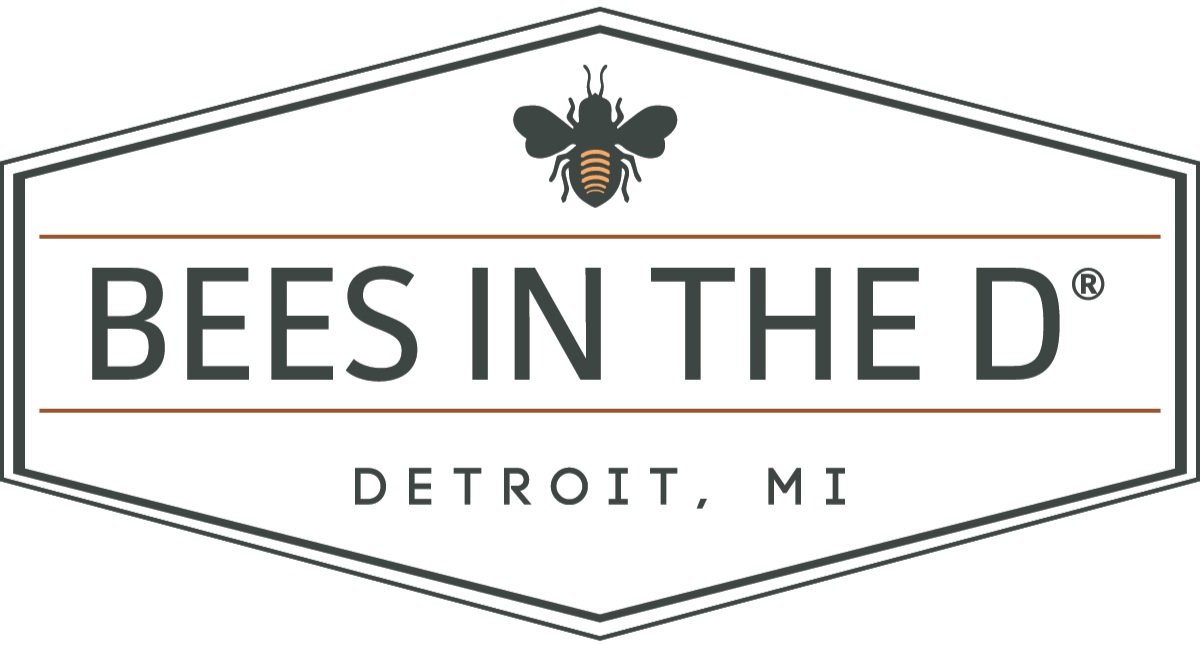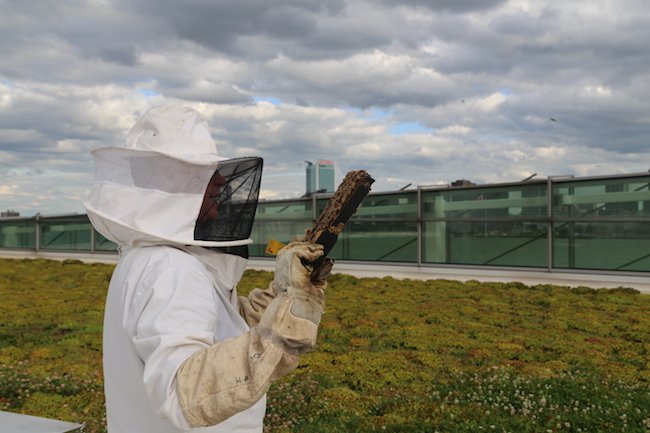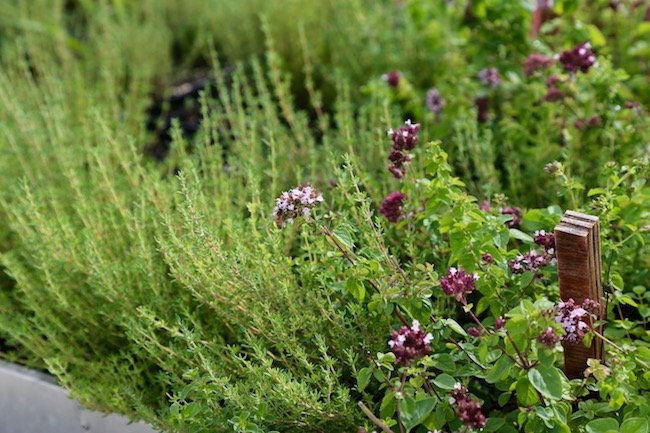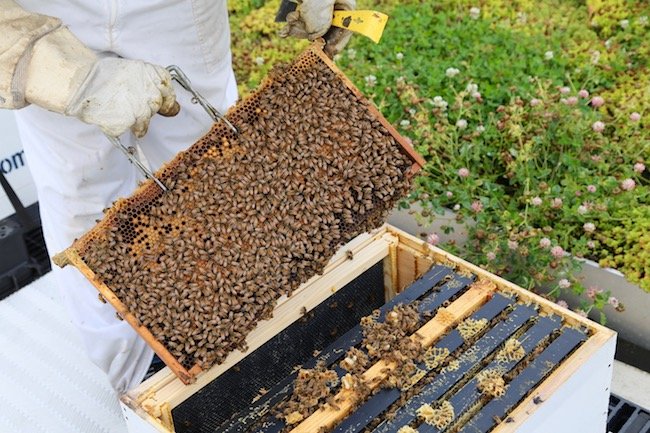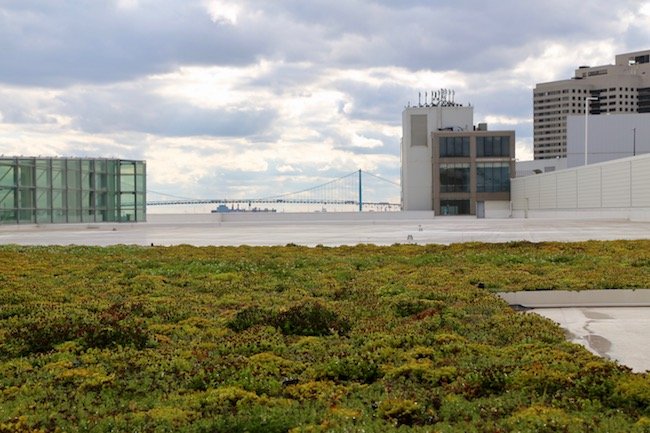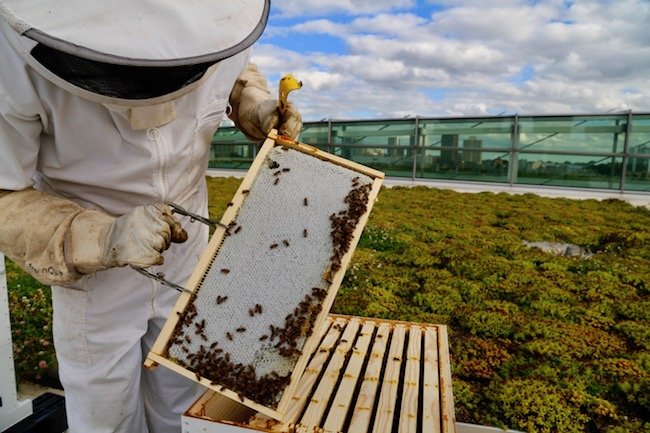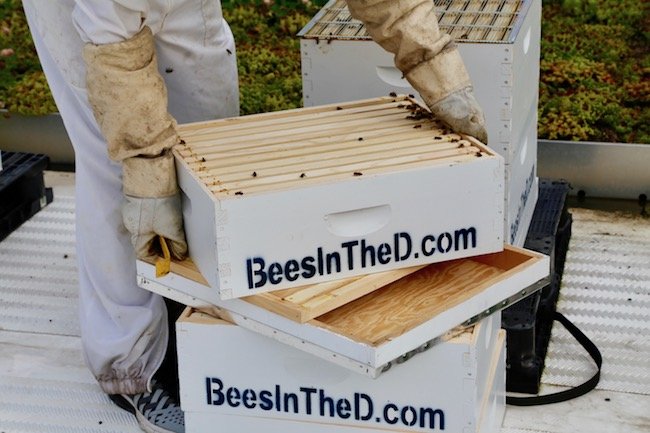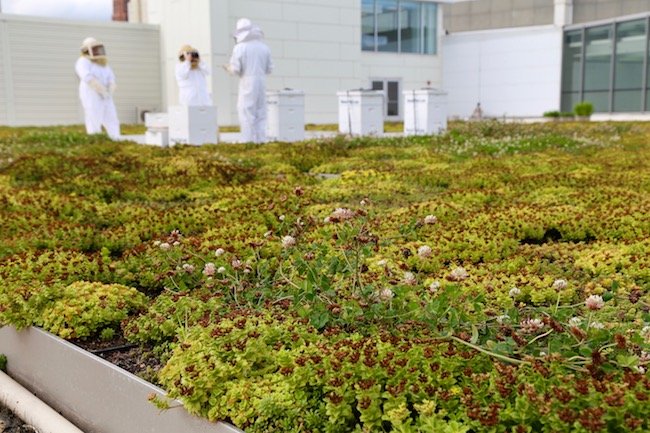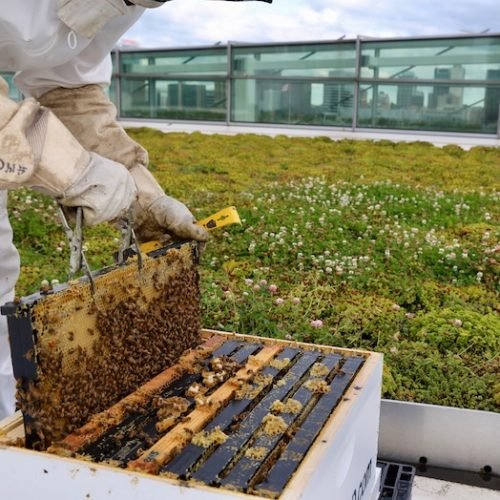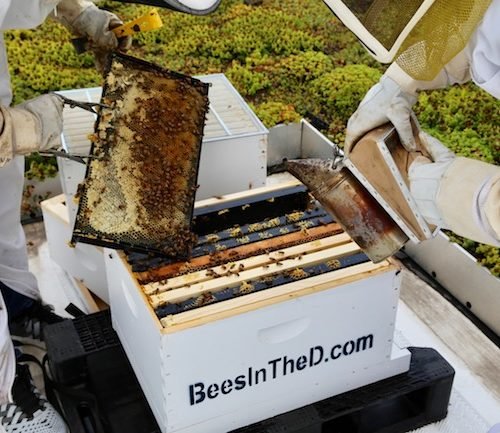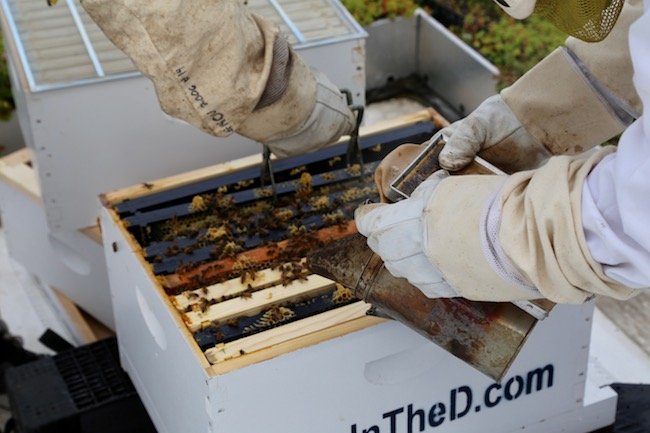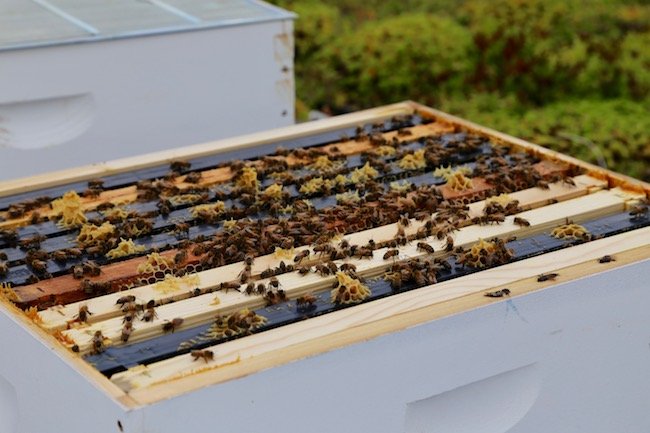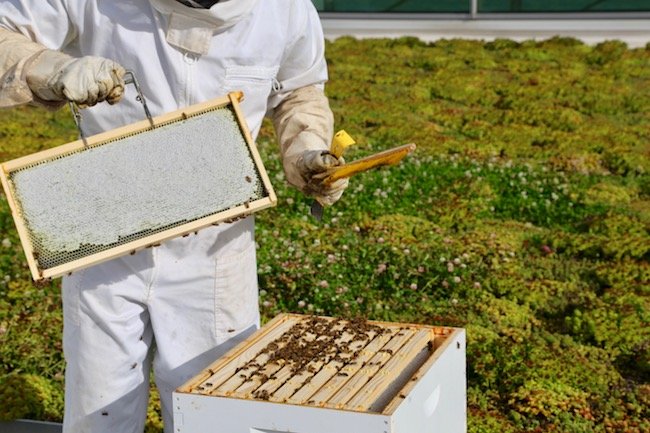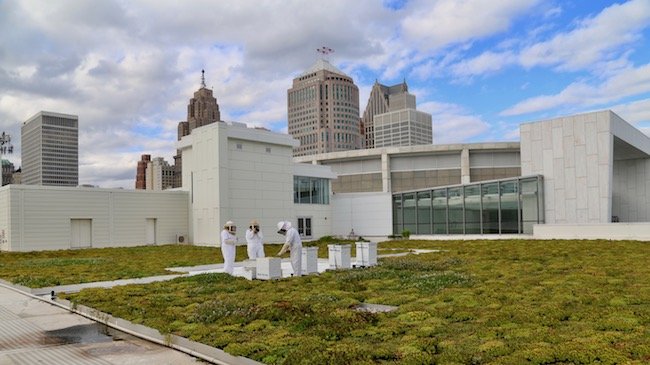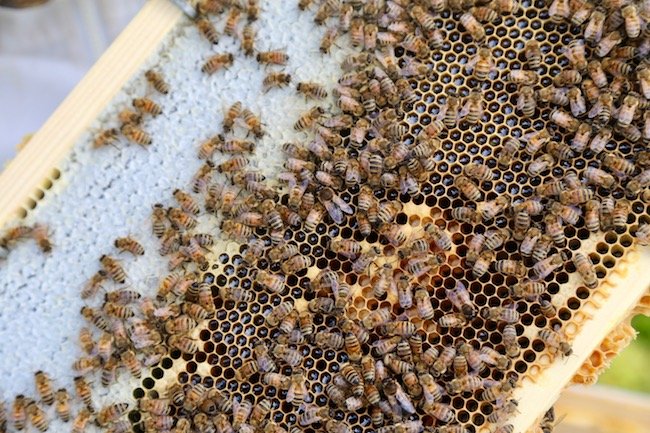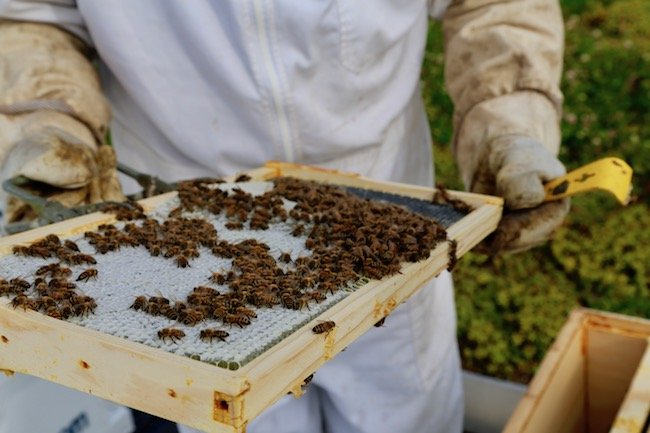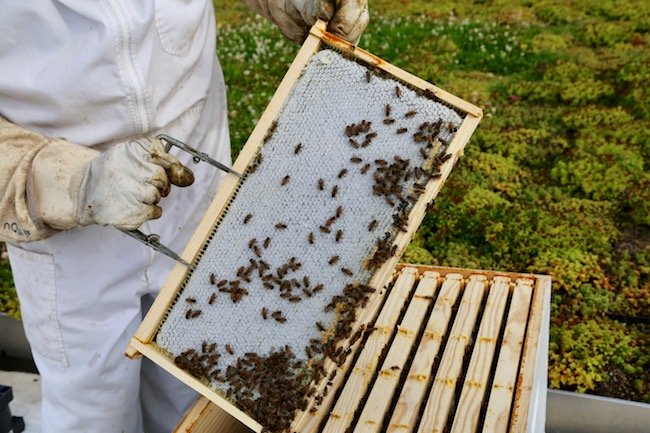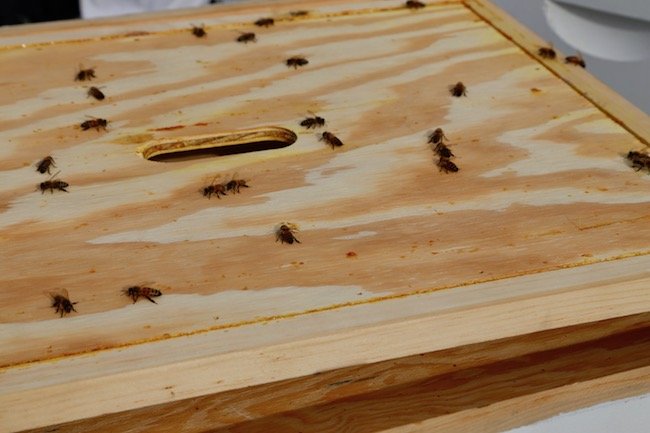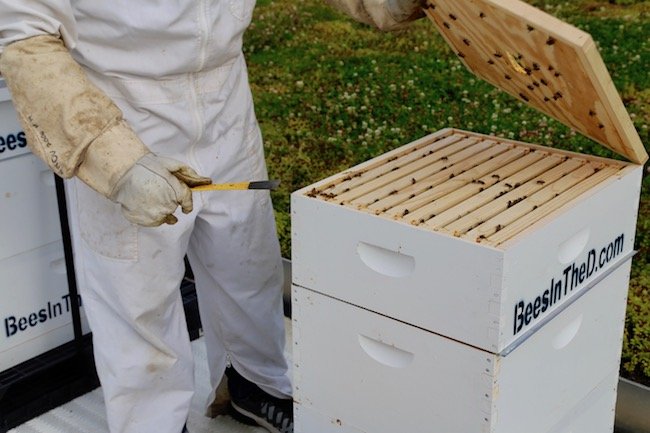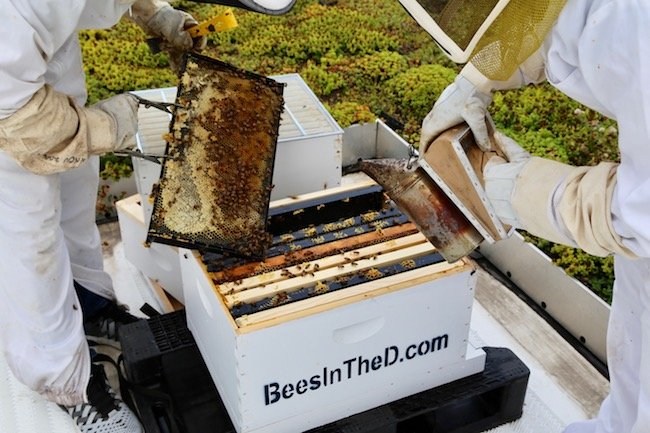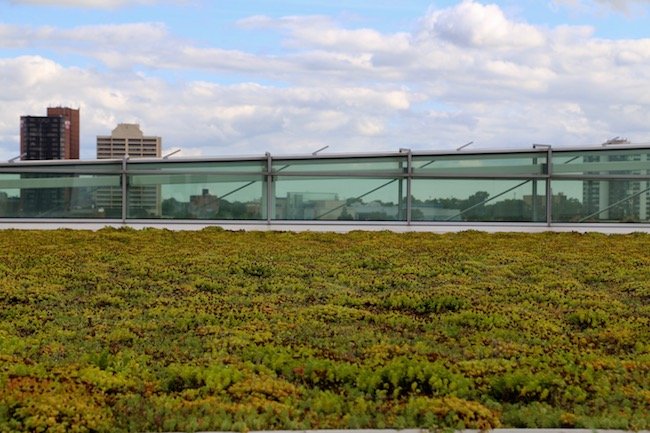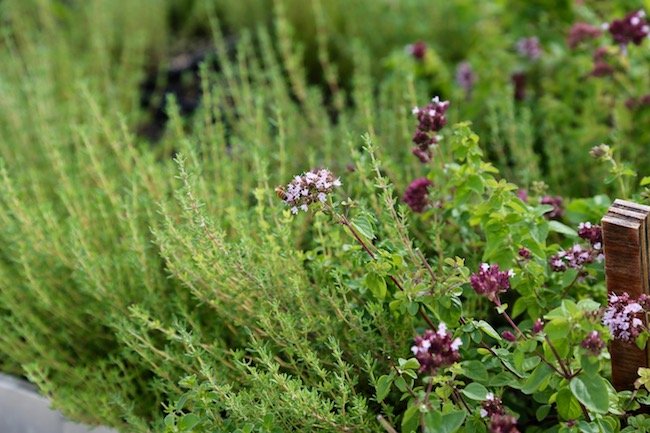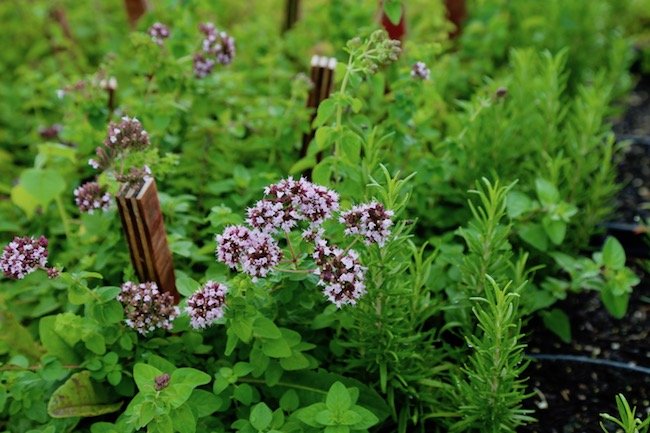THE BUZZ ABOUT COBO’S SUSTAINABILITY EFFORTS
THE BUZZ ABOUT COBO’S SUSTAINABILITY EFFORTS
AUGUST 28, 2017
Whether you’re a local Detroiter, or an individual who has never stepped foot in the Motor City, the industrial renown of Detroit is understood by many. From its rich roots in factories and large warehouses to the environment of engineering brought upon by the automobile industry, the city made a name built upon the foundation of metal and motors.
Unfortunately with that reputation, came a legacy of pollution and other not so friendly environmental habits. In the past, not much effort was made regarding the principals of “reduce, reuse and recycle,” not to mention, the ideals of self-sustainability were still far-off in the future.
Enter the 21st century, where it’s more common to find a recycling can in a building than not, and companies striving to find ways to eliminate their carbon footprint. Standing amongst the greats is Cobo Center, where their green initiatives are making quite the buzz.
This past June, the Cobo Center added beehives to a rooftop green space, located on the base of a helicopter-landing pad.
The beehives are maintained by co-founders Brian Peterson-Roest and Brian Roest-Peterson of Bees in the D, a 501(c)(3) non-profit organization, dedicated to the health of honeybee colonies and the education of their importance to our environment.
Kristin Shaw, manager of digital and social media as well as a member of the green team at Cobo Center, sought a way to expand operations on the green roof when she was introduced to Bees in the D by Tyson Gersh, founder of the Michigan Urban Farming Initiative (MUFI). Along with having hives at MUFI, Peterson partners with local chocolatier Bon Bon Bon at their Hamtramck location and Detroit City Distillery in the old Stroh’s Ice Cream plant.
“This is the only location that I actually have four hives,” explained Peterson, referencing the roof of Cobo. “The only difference between this location and our other partners is the living roof component. It’s really neat to see the bees in this setting.”
The green roof is located on a repurposed helicopter-landing pad, just above the chilled water plant that provides air conditioning for a few buildings of the Cobo Center. Sitting on 100,000 square-feet of cement, the space is unique in the sense that it not only provides a pollen and sedum source for the bees, it does financial “good” as well. Green roofs absorb so much water, that they actually diminish the runoff water, lowering the cost of sewage and drainage city tax.
“This is the poster shot,” Peterson exclaimed about the rooftop oasis. “This, to me, defines urban beekeeping, and I love that it’s visible to the Cobo employees who come out of the elevator. I think that’s so unique.”
Shaw had discussed the possibility of activating beehives on the green space just a few months ago, in June. “We turned it around very quickly,” she recalled. “[Brian] had to do a little bit of a hunt to find the bees that we could install, since it was late in the season.”
Honeybees, while not an endangered species like their cousin the bumblebee, has a dangerously declining population. Peterson insisted that urban areas, like Detroit, are actually increasing the bee population, due to empty lots and green spaces, like the roof of the Cobo Center.
Peterson is an advocate for Detroit as a leader in beekeeping, with a history that’s very much engrained in the imagery of bees. He pointed out that you can find bee icons in some of the city’s most notable architecture, such as the Masonic Temple and the Fisher and Guardian buildings.
“There are bees incorporated in the architecture because they symbolize, and have symbolized for years, things like industry, producing and resurrection – That’s my favorite one with Detroit right now, because we’re always talking about this resurgence and I love that bees are symbolically becoming a part of the rebirth of Detroit.”
On top of the newly installed honeybee program, Cobo’s efforts of sustainability extend into day-to-day operations.
“We’ve put procedures in place that try to capture a lot of different things that exit Cobo Center,” explained Cedric Turnbore, director of operations for Cobo Center, and co-chairman of the sustainability program.
Such things include composting, with their first season yielding 89,000 pounds of compost, smashing their original goal of 25,000 pounds. They’ve also added 26 recycling stations throughout the facility and use a vinyl-recycling program for their signage.
“It’s also about education,” added Claude Molinari, general manager of Cobo Center. “It’s important to make it as easy as possible for people; to make it where it’s harder to not recycle, otherwise people won’t. Sustainability is engrained in our culture as a facility, not just something that we dabble in, but something that we’re doing everyday.”
The team has future ambitions to build a hydroponics greenhouse, with the goal of growing all produce used in the meals onsite. Efforts of garden-to-table programming are already being implemented, from the herb garden grown in the green space, to adding honey to the mix after their first honey extraction.
Public gathering facilities like the Cobo Center stand as a reminder that while Detroit has a rich history of industry and innovation, there is always an opportunity to change the narrative. From metal and motors to honeybees and sustainability, green initiatives will continue to appear throughout the city, with Cobo striving to set the tone.
“We have a big footprint in the city,” added Shaw. “Everyone that comes here is an opportunity for us to send an advocate of sustainability into the city.”
You can check out more information about Bees in the D on Facebook and Twitter.
What sustainability practices would you like to see happen in Detroit? Let us know in the comments section!
